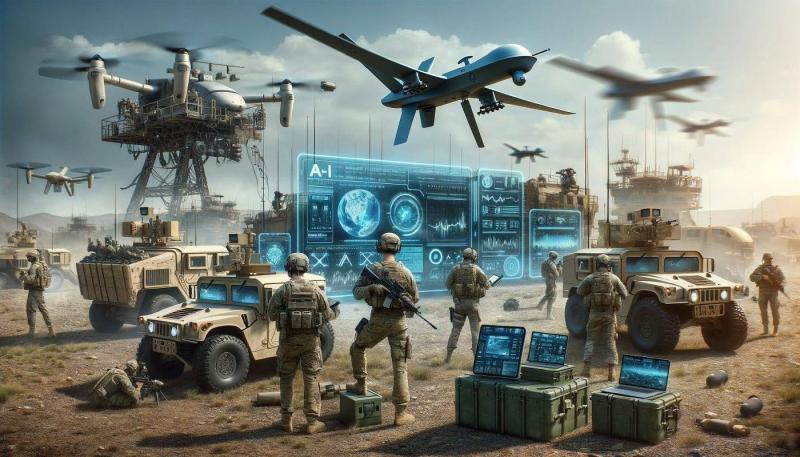Recently, "The Economist" magazine dedicated a special issue to the uses of artificial intelligence in contemporary wars. Since the beginning of the industrial revolution in the 18th century, wars have progressed in parallel with industrial and technological advancements. Until the 20th century, this was done through a combination of explosive charges and means of delivery, such as artillery, advancements in small arms, and submarines that appeared in World War I, hiding in the sea and attacking from below, along with planes that exercised their destructive capabilities from the sky. World War II witnessed developments that were not related to destructive capacity or means of launching but involved identifying the opponent, measuring the distance to them, and determining the amount of explosives needed to kill, sink, or destroy them. The computer was born through mathematician Alan Turing, who built a massive machine that performed crucial tasks during the war, contributing to the victory of the Allies and saving 15 million lives. The impact of this new tool was perhaps greater than that of the atomic bomb dropped on Hiroshima.
In today's warfare, artificial intelligence is being utilized. While this is certain in the Russian-Ukrainian conflict, its application in the Gaza war is less certain, except on the part of the Israelis and possibly the Iranians, who supply the Houthis with rockets to disrupt navigation and trade in the Red Sea and the Suez Canal. Drones have been widely used in both conflicts, capable of making decisions about striking or maneuvering around the opponent. Recently, Hezbollah employed a more sophisticated drone to enter Israeli airspace and capture images of military targets such as airports, ports, and military bases without detection by the Israeli side. It is now evident that artificial intelligence is accompanied by composite materials that do not naturally exist, making them undetectable and lacking identifiable components. The images taken by the drones now serve as a form of deterrence, warning Israel against continuing its military operations deep into Lebanese territory.




